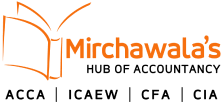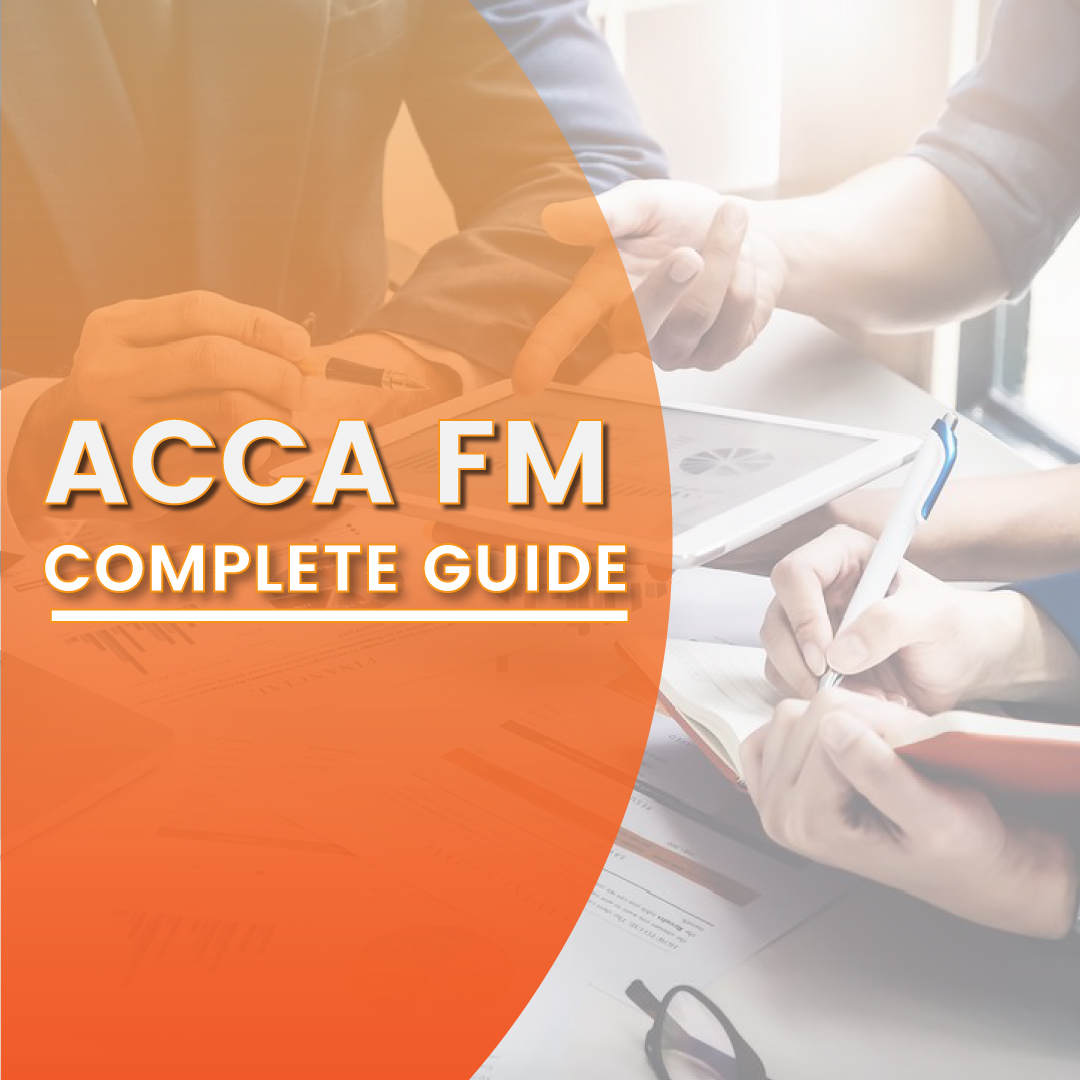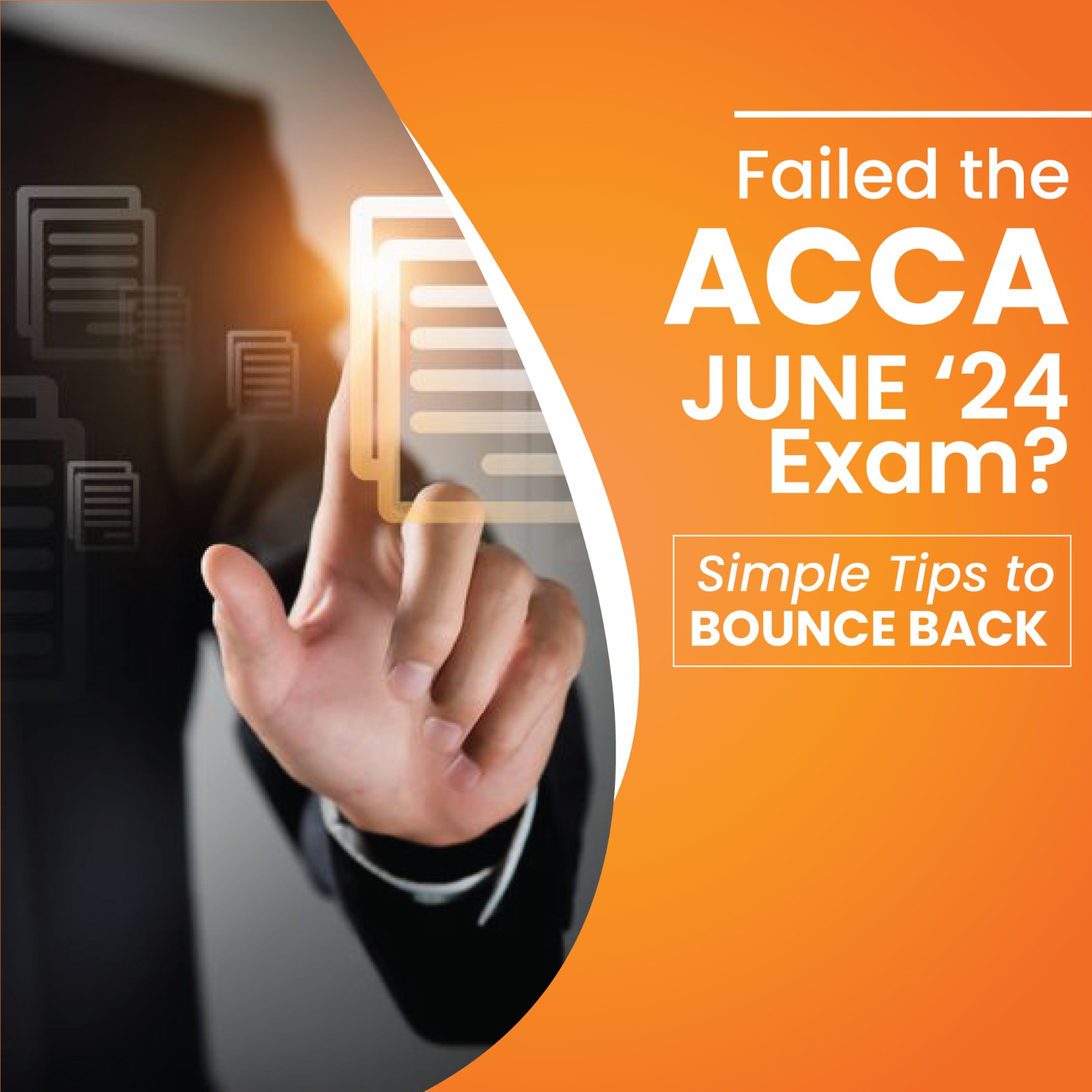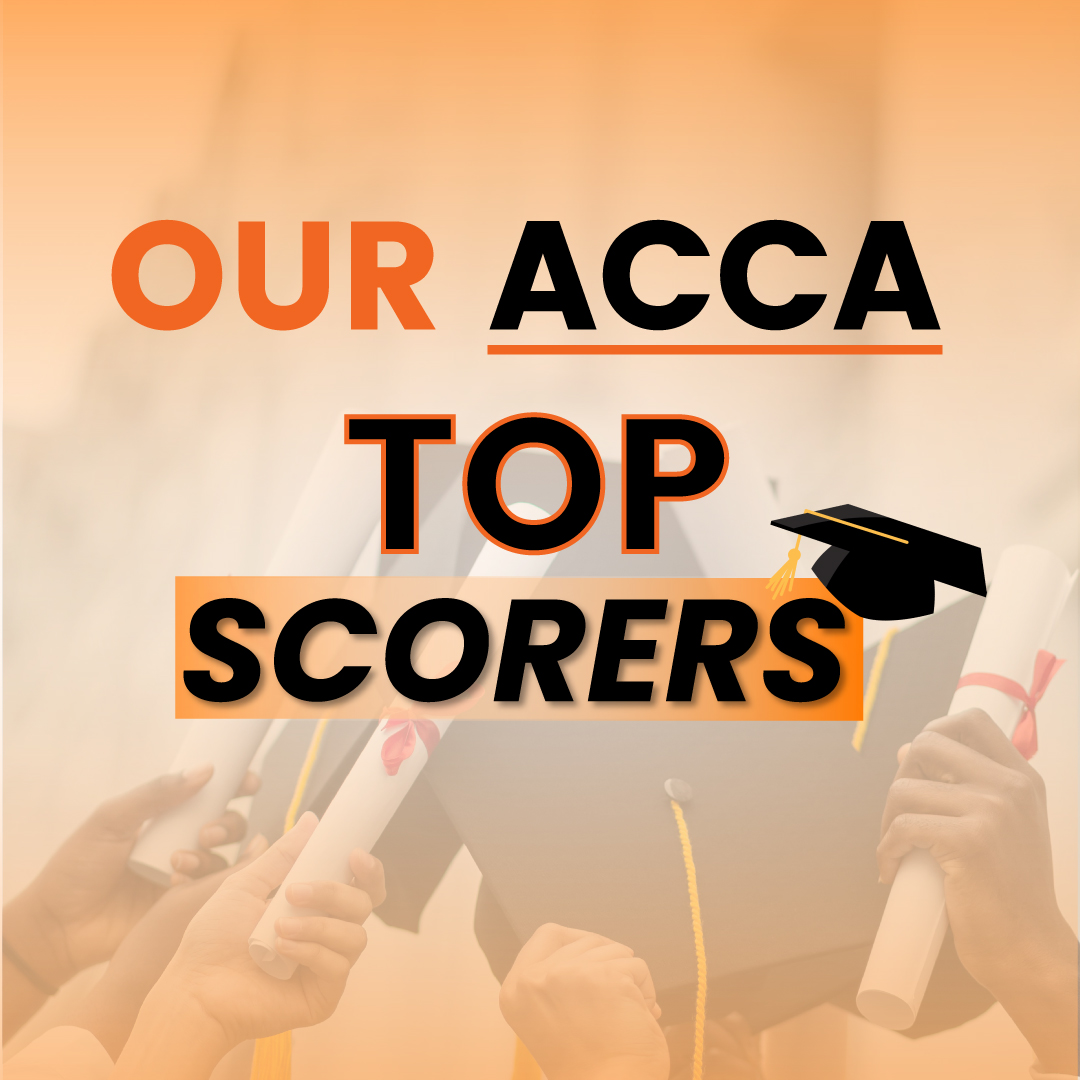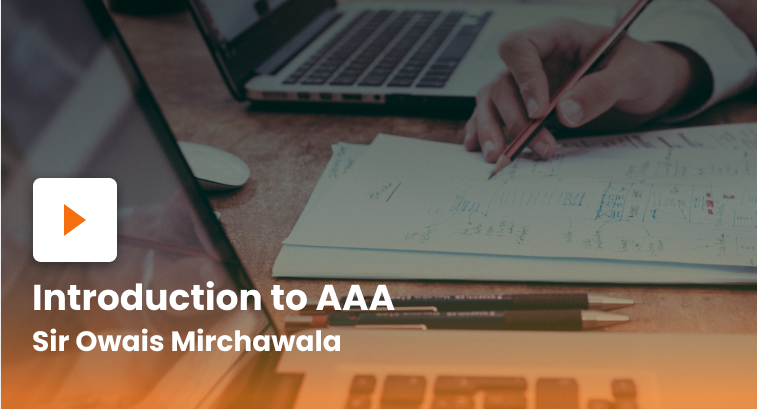All you need to know about “SBR” – an ACCA professional exam
As per the order laid out by ACCA, Strategic Business Reporting (SBR) comes first in the series of professional exams. Assuming you follow the same trend, welcome to the professional world! You are now embarking on a journey where your critical thinking skills will be tested, and professionalism is as crucial as technical expertise.
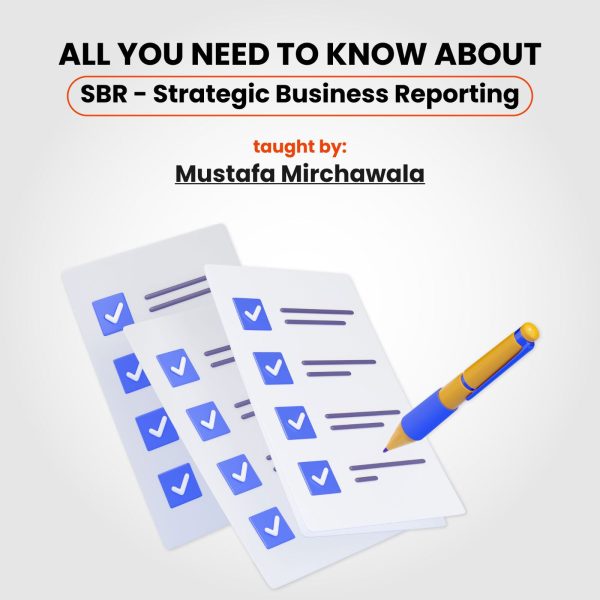
The Big Picture
As the name indicates, strategic business reporting is a subject primarily dealing with reporting. This means that you are not only crunching numbers and calculating figures but doing much more than that; you are also analyzing, explaining, and reporting them to the stakeholders.
Put in simpler terms, SBR tests your ability to work at a strategic level in an organization, where you need to focus on interpreting financial statements, evaluating the impact of transactions on financial statements and stakeholders, assessing past financials, and deriving future plans. You will also need to report relevant information to investors through appropriate channels. Decision-making and judgment are, therefore, pivotal in this exam.
Building up from financial reporting
Before we delve into the Strategic Business Reporting syllabus or SBR syllabus, you must know that certain areas of the subject are related to your previous studies. Following a pattern of difficulty level, as understood by most students, the flow begins with financial accounting (FA), then heads on to financial reporting (FR), and ends with strategic business reporting (SBR).
While Strategic Business Reporting (SBR) isn’t merely an advanced version of FA and FR, it builds upon your knowledge of these subjects. Strategic Business Reporting (SBR) covers some areas of FR but also delves into several new and more complex technical areas.
Following are the areas in which FR and SBR overlap and how SBR takes it a step further:
| Strategic Business Reporting | |
| Conceptual and regulatory framework for financial statements | Taught at an earlier stage, this framework is also a part of SBR. However, simply memorizing the principles and regurgitating them is not what SBR demands – you need to have a deeper understanding of the framework and be able to apply its principles in relevant situations. Additionally, linking the concepts to accounting standards is also crucial to display your understanding. |
| Accounting for transactions | Stepping up to the level of SBR means that you will be digging deeper into the standards you studied in FR and covering several new ones. Thus, the course will be longer and more comprehensive. Simply having the technical knowledge of an accounting standard is not enough. For SBR, you must also be able to apply it to a given scenario. |
| Analyzing and interpreting financials | Previously, any question regarding analyzing and interpreting the data has meant that you have to calculate ratios and then comment on them. However, in SBR, this has a much deeper and more complex meaning. You will now be assessing as well as questioning the information given, finding underlying issues within the numbers and calculations provided, commenting on the impact on interested parties, and offering suggestions for improvement and correct treatments. |
| Preparation of Financial Statements | For SBR, route learning various consolidation techniques won’t come in handy (as it did in FR, where preparation of financial statements, calculations, and number crunching was the requirement). It is highly unlikely that a question will purely focus on calculations. Instead, you will the major focus will be on explaining those figures. It is clear that SBR is all about structuring compelling narratives. Your success relies on your communication skills in terms of explaining and justifying your calculations, critically evaluating the information given, and demonstrating your ability to engage in discussion. |
Course Outline
Note: Throughout this section, the focus will be on the International (INT) version of the SBR syllabus.
As established earlier, the syllabus for Strategic Business Reporting (SBR) is much more elaborative and far more than rote learning. Along with demonstrating your understanding of the subject matter, you also need to show how well you can absorb that knowledge and apply it to real-world scenarios.
Listed below are some key areas covered in the SBR syllabus. For a detailed syllabus outline, you can head to the ACCA website.
1. Preparing and interpreting financial information
Bringing forward the knowledge acquired in FR, you will prepare financial statements, interpret them for the stakeholders, and analyze them from the view of interested parties for single and combined entities.
2. Corporate reports and ethics
SBR explores the ethical responsibilities of managers and directors, acting as stewards, in providing true and fair information to the stakeholders. Assuming the perspective of a variety of stakeholders, you will be responsible for discussing and applying various concepts and principles to prepare and interpret corporate reports. This will include assessing the reporting decisions of management, whether they are professionally and ethically in line with the respected regulations, and their implications on their stakeholders.
Further, you will also have to reflect on the usefulness of the information contained within corporate reports such as the Integrated Report and Sustainability Report for stakeholders and how they can help assess the prospects of the entity.
3. Financial reporting framework
The Conceptual Framework for Financial Reporting is part of the SBR syllabus and therefore you are required to have sufficient knowledge and understanding of its principles. You must be aware of how different accounting standards comply with the framework and use it as a basis for the preparation of the financial statements. Along with this, your critical skills evaluation will be based on how you discuss the framework’s appropriateness and comment on the changes in regulations.
4. Changes in accounting regulation
The world is fast evolving and so is the business environment. To keep up with the advancements in the accounting world, there are many changes and potential changes in accounting regulations and financial reporting which you must be aware of. As SBR students, you need to be able to address these changes effectively and discuss the developments made. Further, you should also be able to comment on the existing deficiencies in accounting standards and how the changes can help resolve them and subsequently benefit the entity.
Strategic Business Reporting Exam structure
The SBR exam is worth 100 marks, to be achieved within 3 hours and 15 minutes. You will be required to answer all four questions within the given time limit.
Section A
Section A consists of 50 marks divided between two scenario-based questions: Question 1 consists of 30 marks, and Question 2 is worth 20 marks.
The first question will test your knowledge regarding group entities and, therefore, consist of group financial statements or excerpts from the group’s financials, along with some issues regarding financial reporting (i.e., testing other accounting standards). The requirements will differ but are most likely to relate to identifying errors in the statements, suggesting the correct accounting treatments, and/or reporting them to the stakeholders.
The second question will relate to the reporting and ethical implications of certain issues presented in a scenario. Be it the ACCA Code of Ethics or the general code of conduct, ethics and integrity are crucial parts of an accountant’s profession. Hence, you must be able to demonstrate your knowledge and professional skills in applying ethics to the SBR exam. This question will also carry two professional marks, the criteria of which will depend upon the requirement.
Section B
This section covers a vast area of the syllabus and could therefore relate to any topic in the course. There will be a set of two questions, each worth 25 marks and consisting of a scenario. The requirements will be both computational and discursive. Two professional marks will be awarded in question two of Section B. Again, the requirement will state what these professional marks will be awarded for.
Professional skills marks:
Every ACCA professional exam now consists of 4 marks that are dedicated to these skills (except for SBL, which accounts for 20 professional marks). This helps ACCA foster students with a combination of technical and professional skills necessary for success in the modern workplace.
These professional marks are awarded based on the overall quality of the answer. However, ACCA has developed a comprehensive set of criteria to award professional marks accordingly.
Analysis skills
This skill requires you to carefully assess the information given. You need to be able to investigate through a variety of sources, prioritize relevant information, and then logically process it to come up with a conclusion or recommendation.
Evaluation skills
As accountants, equally crucial to research is the ability to reason. Whether it is cost and benefit, risks and opportunities, or threats and weaknesses, evaluation is an important skill to possess. Evaluation could either mean comparing and contrasting, or considering the impact of each decision on its stakeholders and the business.
Communication skills
Not everyone understands numbers as well as accountants do. Therefore, it is essential to have great communication skills to effectively get your message through to your audience. Good communication skills entail being able to express yourself clearly and convincingly while choosing the correct medium that aids in the effective conveyance of your message.
Commercial acumen skills
In a general sense, ‘thinking outside the box’ is what commercial acumen is. To make it more relatable to accounting, this skill requires you to have an understanding of the commercial world and external factors surrounding and affecting the business.
Skepticism skills
Having a skeptical or questioning mindset is always encouraged for accountants and auditors; after all, not everything you are told is trustworthy. You need to demonstrate awareness and the ability to challenge and critically assess pieces of information that raise doubt or are inconsistent with other information presented.
How to prepare for SBR:
There’s no set way of studying or any shortcut to pass; you need to work hard towards your goal. After all, hard work and determination equal success!
Most students get stuck at ‘Where should I begin?’ while initiating their self-preparation before the exam. To help you with this dilemma, here’s a quick step-by-step list of how you should begin preparing for SBR:
Plan out your study time
Dedicate sufficient time from your day to your studies, keeping in mind your work and other commitments. Schedule consecutive hours with short breaks in between to maintain the flow and rhythm of your studies.
Start with the technical knowledge aspect
Begin your self-preparation with the revision of the technical material. Make sure you have a strong grip on your financial knowledge from FR as well as the ew areas of the SBR syllabus.
Cover the syllabus widely
It’s important to remember that any topic from the syllabus can be tested in the exam. Therefore, you should have a breadth of knowledge rather than in-depth knowledge of a few topics.
To help with your studies, a great resource is the ACCA study materials and technical articles. These resources can provide you with the necessary knowledge to excel in the exam.
Practice exam-type questions
Equally crucial to studying the subject material is the art of customizing it according to the scenario, and this will only come through practice. Reiterating it, SBR is much more than numbers; it is discursive and requires writing skills. Try to write full-length answers under exam conditions, and then take the time to review them from the published answers. Although those are very comprehensive and unlikely to be produced under strict exam conditions, they are still a good measure of what the examiner expects from you. This will also help you write clear and to-the-point answers.
Practice time management.
Effective time management is vital to succeeding in any exam. You need to be able to fulfill all the exam requirements within the time limit, so restricting your time during practice sessions is a great way to prepare yourself to sit for the exam. Time yourself while attempting past and specimen exams and assess how quickly you can complete all the given requirements.
How to Attempt the Strategic Business Reporting Exam?
Scan the exam and read the question requirements first.
Inconsistent with what most students do, try to read the requirements before heading straight onto the case study. This way, you can understand what you need to focus on while reading the scenario and it will be easier for you to highlight important points that will help you answer the question.
Read the question requirement very carefully; re-read it if necessary, but make sure that you are absolutely clear on what the question is. This is one of the major traps (also highlighted by the SBR examiner) that most students fall prey to. Familiarize yourself with the question before diving into the scenario-reading and answering process. This will help you stay on track and answer the question correctly.
Form your answer; focus on the format:
After thoroughly reading the question and the scenario, create a rough answer plan. This will allow you to be aware of what you need to write. Remember that it is the examiner’s practice to submerge multiple standards in one issue; beware of that! Also, do not simply regurgitate the technical information in your head; apply it and make it relevant to the scenario. With these key points in mind, begin writing your answer.
A good answering approach applicable to SBR is:
- State: Briefly state the facts of the scenario that are an issue to be discussed.
- Apply your technical knowledge to that given issue and discuss its implications.
- Conclude: Give a well-explained recommendation or correct treatment based on your knowledge.
Apart from this, try to make your answer ‘easy to follow’; the clearer and easier to understand your answer is, the more likely it is to score. This is aided by the use of headings and short paragraphs.
Also, whenever there is a calculation required, lay it out appropriately and with clear referencing. It is advised to keep lengthy calculations separate from the main text and instead use referencing to link them to your answer’s main body. This will demonstrate your communication skills and make your answer much more organized.
Frequently Asked Questions (FAQ’s) on SBR
Q1: Is SBR difficult to pass?
Being a professional exam, yes it contains depth and complexity. However, if you prepare and practice well, you are deemed to ace it!
Q2: What is the passing ratio of SBR?
On average, the pass rate for SBR has been 50% as per the official ratio announced by ACCA.
Q3: Is SBR a computer-based exam (CBE)?
Yes, all ACCA exams are now computer-based.
Q4: How much time should be spent on each section of the exam?
It is advised to spend half of your allocated time on section A and half on section B.
Ace your exam!
If you read this article all the way through, which I hope you did, you are now well aware of what SBR is and how it is examined. As stated earlier, SBR is a step up from your Applied Knowledge exams, and therefore this information is likely to help you with your preparation!
All the best for your Strategic Business Reporting exam! Feel free to contact us if you want to learn more about ACCA courses and their career scope.
-Written by Sarosh yameen – A shining student of Mirchawala’s Hub Of Accountancy
